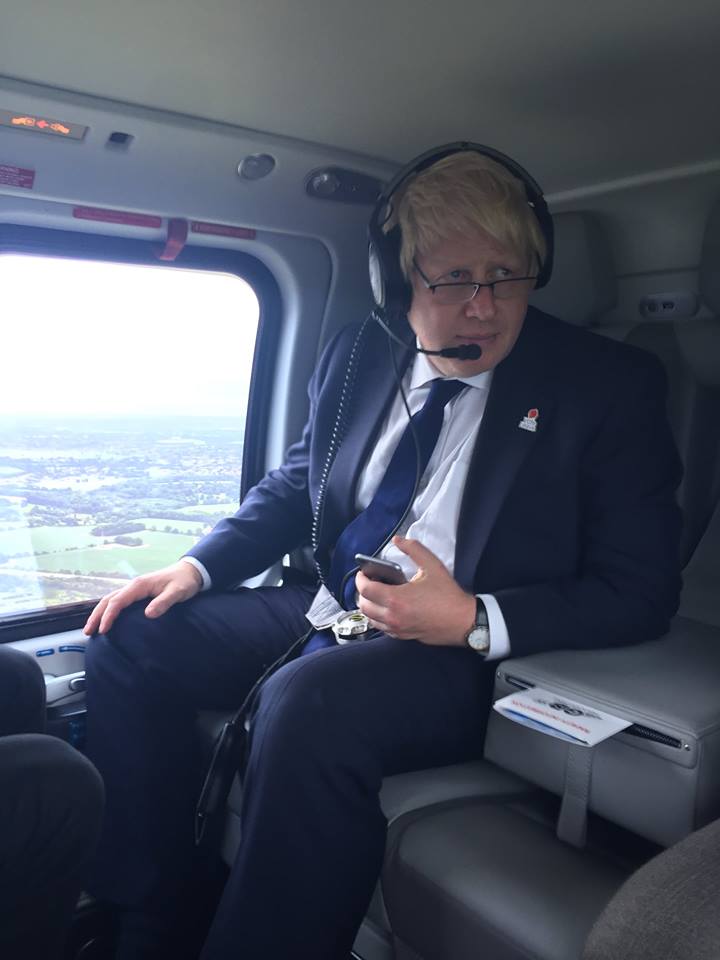
It’s been a busy three weeks in British politics, but it’s been an especially busy 36 hours since Theresa May became the new prime minister and rolled out the key appointments of what will be the country’s government for the foreseeable future.![]()
The most important role goes to Philip Hammond, who is now chancellor after three years as foreign secretary, and Amber Rudd will replace May as home secretary. But the biggest surprise was May’s decision yesterday to appoint former London mayor Boris Johnson as the new foreign secretary.
In one sense, it’s a perfect move for Johnson, who is perhaps the most well-known British politician abroad, who was born in New York City, and who (mostly) served as a capable ambassador for London in his two terms as mayor, most notably during the 2012 Olympics. It’s a remarkable comeback for a politician who lent his star power to the ‘Leave’ campaign, then watched as his ally, Michael Gove, brutally nudged him out of the Conservative leadership contest. Despite his humiliating withdrawal from the contest, Johnson is still one of the most potent political talents on the Tory benches.
For May, however, it is a bold and cunning move — for at least four reasons.
First, as the saying goes, it’s often better to keep your friends close and your enemies closer. Johnson’s appointment keeps a potentially dangerous rival inside government and, indeed, in one of the most prestigious posts imaginable. With Andrea Leadsom’s sudden withdrawal from the Conservative leadership runoff, the Tory grassroots never had any real input into May’s ascent. If she proves unpopular at any time between now and the 2020 election, or if she backs away from her promise to implement Brexit, it would have been easy for Johnson to mount a challenge. His appointment as foreign secretary makes that far less likely. As the country’s top diplomat, for example, he will not be setting down markers in newspaper columns for the next three years in anticipation of a leadership challenge. In some ways, it’s reminiscent of US president Barack Obama’s decision to appoint his one-time rival Hillary Clinton as secretary of state back in 2009.
The second reason is that it will keep Johnson globe-trotting while May, Hammond and the rest of the cabinet get on with running the country. May has made it clear that the economy, not Brexit per se, is her priority, and Johnson will have virtually no role to play in that. Johnson could be off having bilateral discussions with Chile’s foreign minister while May and Hammond generate a new British approach to industrial policy.
Third, to the extent that Johnson commits a diplomatic faux pas, it will only reinforce his image as something of a charismatic lightweight, making it even more difficult for him to challenge May for the premiership. Though Johnson has proven his ability to stay on message with remarkable discipline over periods — like his initial 2008 campaign for London mayor — there’s every likelihood that he might find himself tripped up over diplomatic protocol. It’s an easy trap.
Finally, and most importantly, there’s far less than meets the eye to this appointment. It’s much more flash than substance. The Foreign and Commonwealth Office is no longer solely responsible for international trade or for foreign aid, so Johnson will not be making policy in those areas. With David Davis’s appointment as the new secretary of state for Brexit, Johnson will not be the most important policymaker when it comes to European affairs, either, notwithstanding his starring role in the ‘Leave’ campaign. Of course, when it comes to life-and-death crises of war and peace, and setting foreign policy, it will be May and 10 Downing Street in charge, not Johnson.